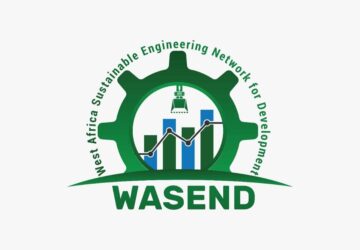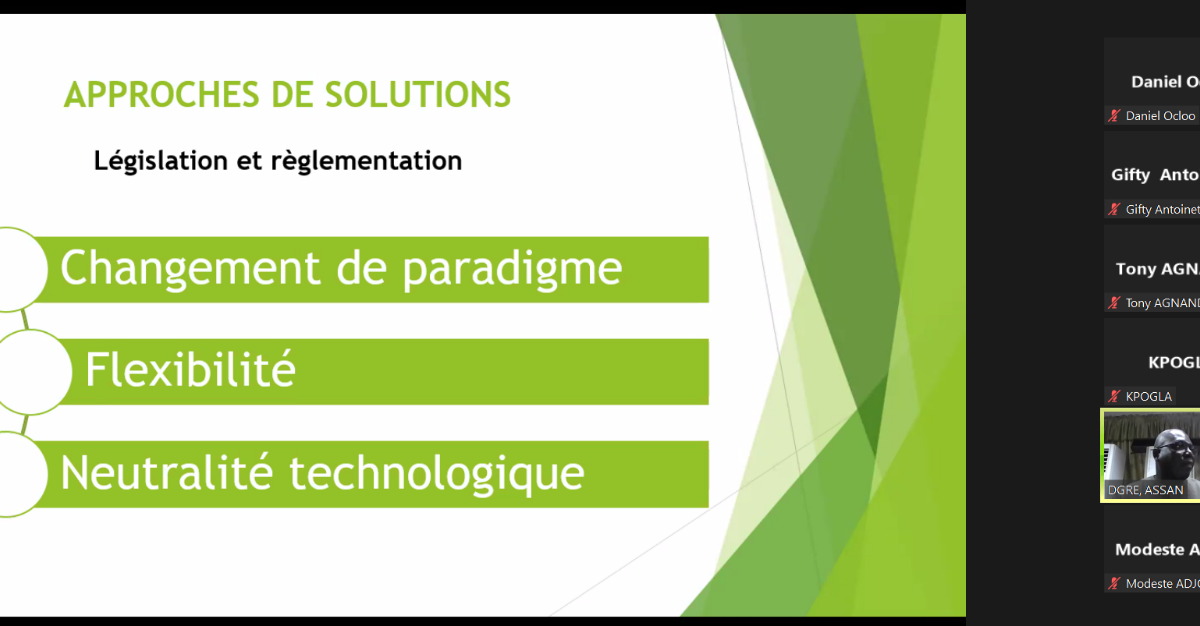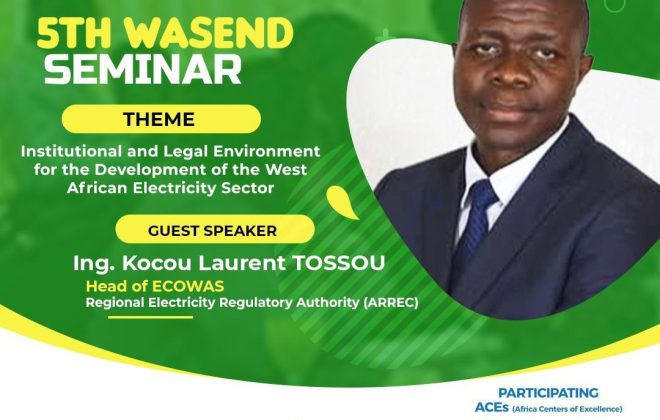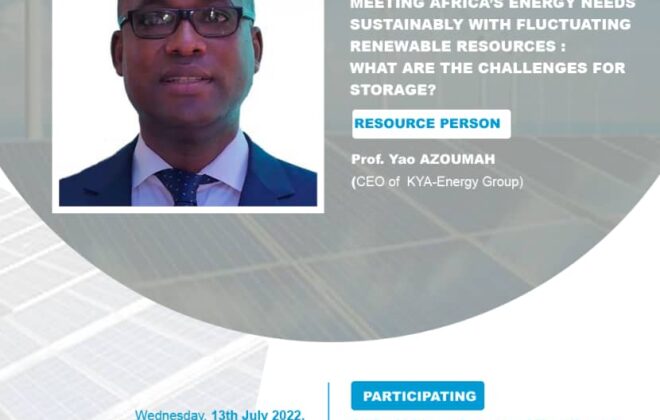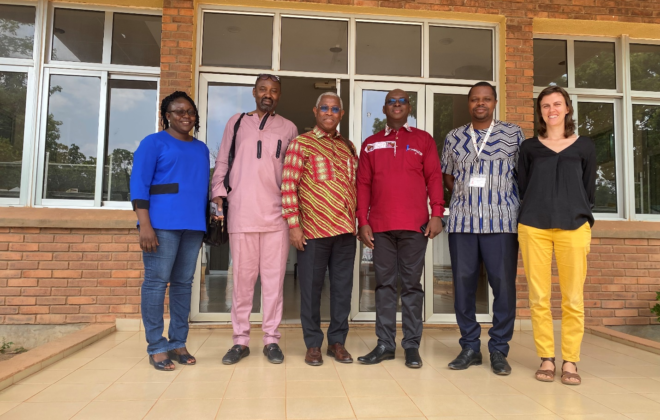ARTICLE ON 4TH WASEND SEMINAR
The 4th WASEND Seminar Exposed the Status of Energy Access in Africa.
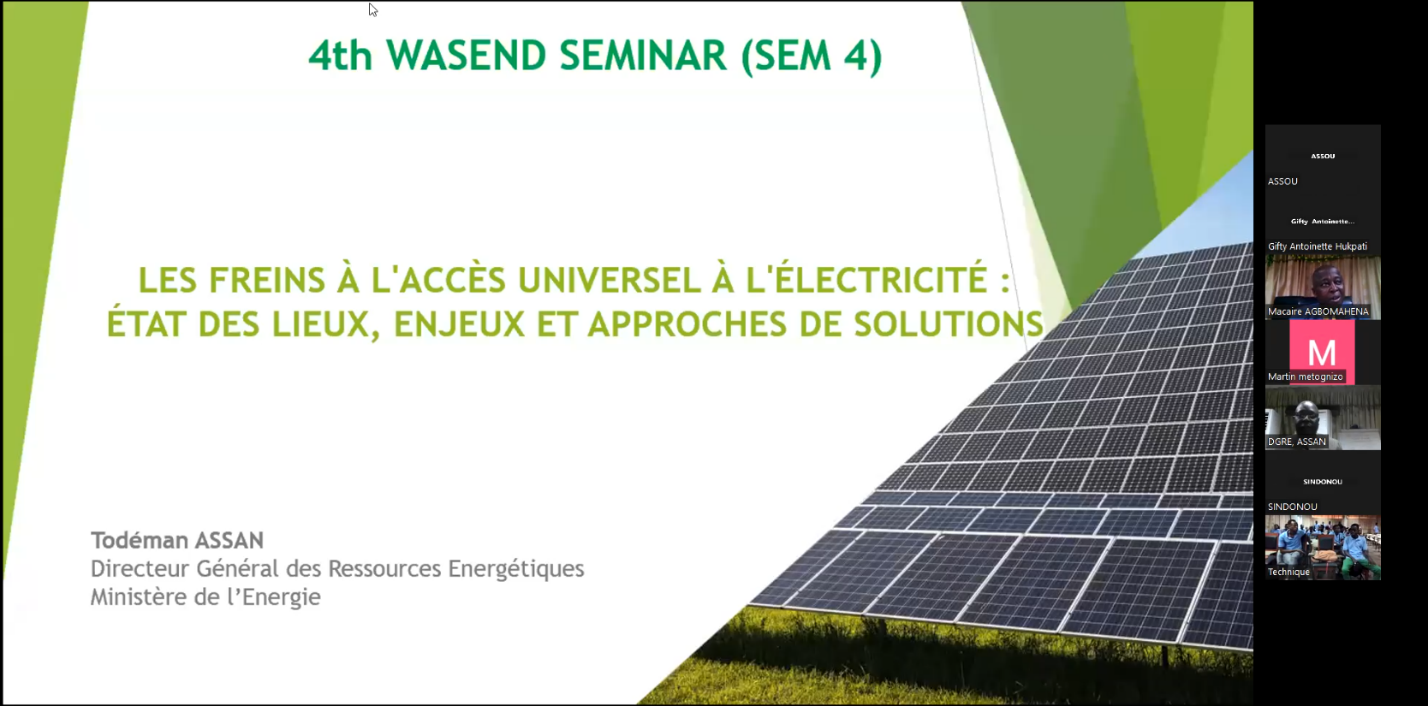
The 4th West Africa Sustainable Engineering Network for Development (WASEND) seminar was held virtually on the 13th of January 2023 with the theme “Obstacles to Universal Access to Electricity: The State of Play, Challenges, and Approaches to Solutions. Mr. Assan Todema, the Head of the Energy Resources Agency at the Energy Ministry, Benin, was the resource person.
In his welcome address, Prof. Jerry John Kponyo, the WASEND Network Coordinator, wished everyone a Happy New Year. He said WASEND’s key focus is energy access, and the seminar’s theme aligns with that. He mentioned that as the network evolves, a transition session is in the pipeline for another center to lead the front, as the KNUST Engineering Education Project (KEEP) in the College of Engineering, KNUST has done. He welcomed everyone to the seminar and encouraged active participation.
Dr. Agbomahena Bienvenu Marcaire, Seminar and Symposium Coordinator, Benin, introduced Mr. Assan Todema as the Head of the Energy Resources Agency at the Energy Ministry, Benin. He said he has rich experience in the energy sector. He has worked on analyzing the resilience to climate change in co-development prospects.
Additionally, He also worked on energy issues in developing countries and organized the electrical industry in rural areas.
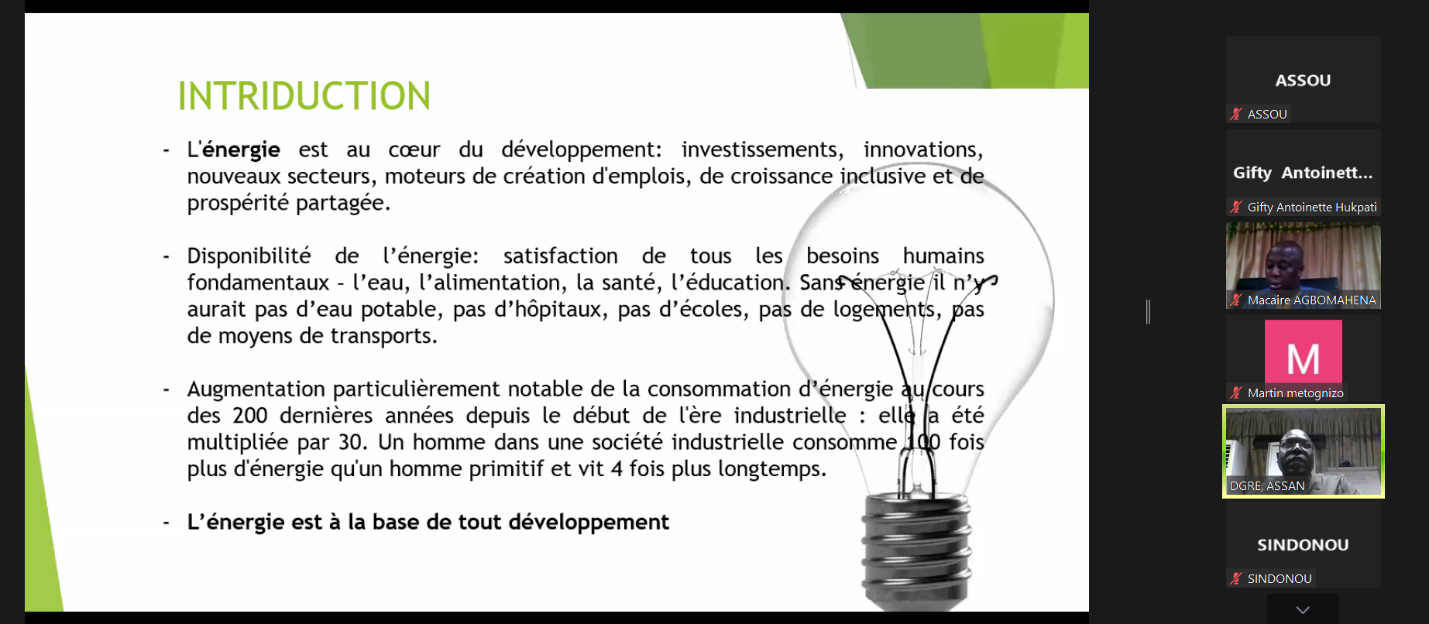
Mr. Assan Todema, in his presentation, touched on the status of access to electricity, the challenges to accessing electricity, and the possible solutions. He said energy is at the heart of development: investments, innovations, new sectors, drivers of job creation, inclusive growth, and shared prosperity. “Availability of energy satisfies all basic human needs – water, food, health, and education. Without energy, there would be no drinking water, no hospitals, no schools, no housing, and no means of transport.”, he stated. He reiterated that energy is the basis of all development.
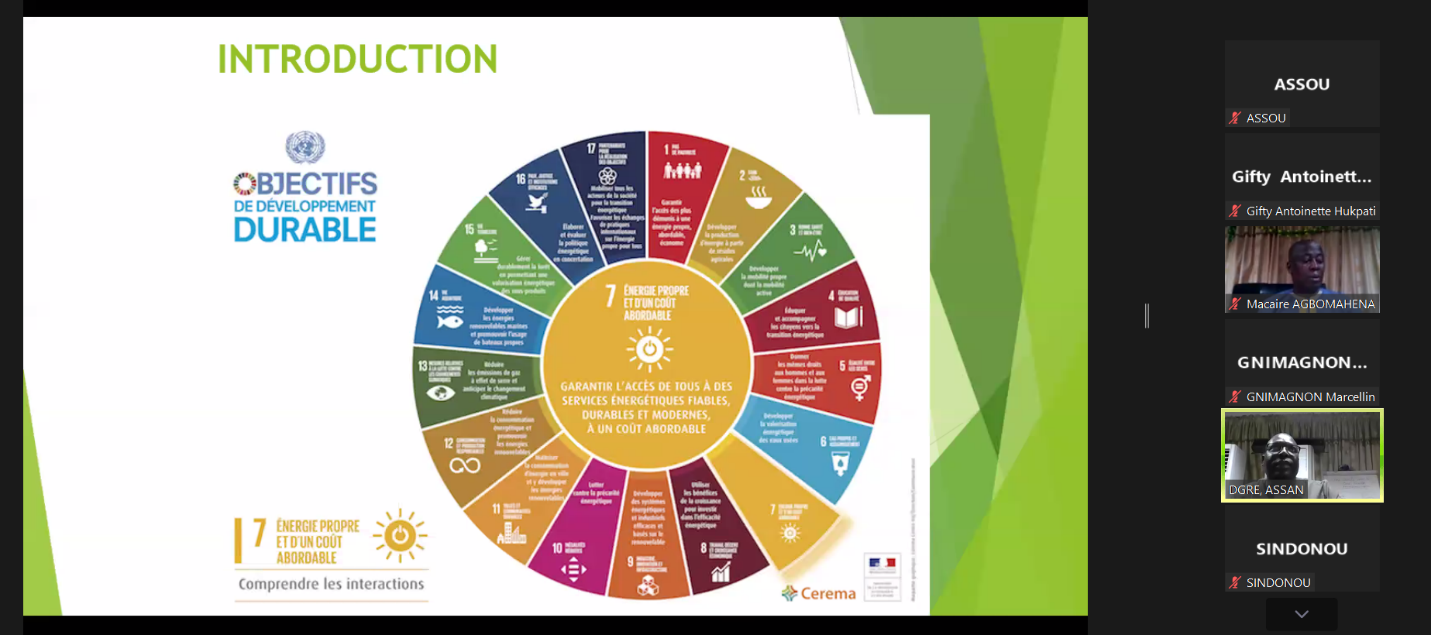
He indicated that to trigger sustainable development, energy has become a necessity for growth, and the Sustainable Development Goal (SDG) 7 concentrates on energy, particularly to guarantee access of all to reliable and clean electricity at affordable cost. He said energy feeds all the other objectives of the Sustainable Development Goals.
He further mentioned that in discussing access to electricity, the viability and reliability of electricity must be considered.
He listed the positive effects of access to electricity as follows:
-
The increase in income
-
New employment opportunities, particularly in the non-agricultural sector.
-
Domestic and recreational benefits
-
Increase in productivity
-
Improvement in health, education, agriculture, etc.
He mentioned the challenges of access to electricity as follows:
-
Poor planning, which does not favor universal access to electricity
-
Poor coordination of infrastructure.
-
Rigidity of legislation and regulations
-
Poor installations
-
Poor quality labor and materials used
-
Technology rejection.
-
High cost of electricity access and no access to adequate funding.
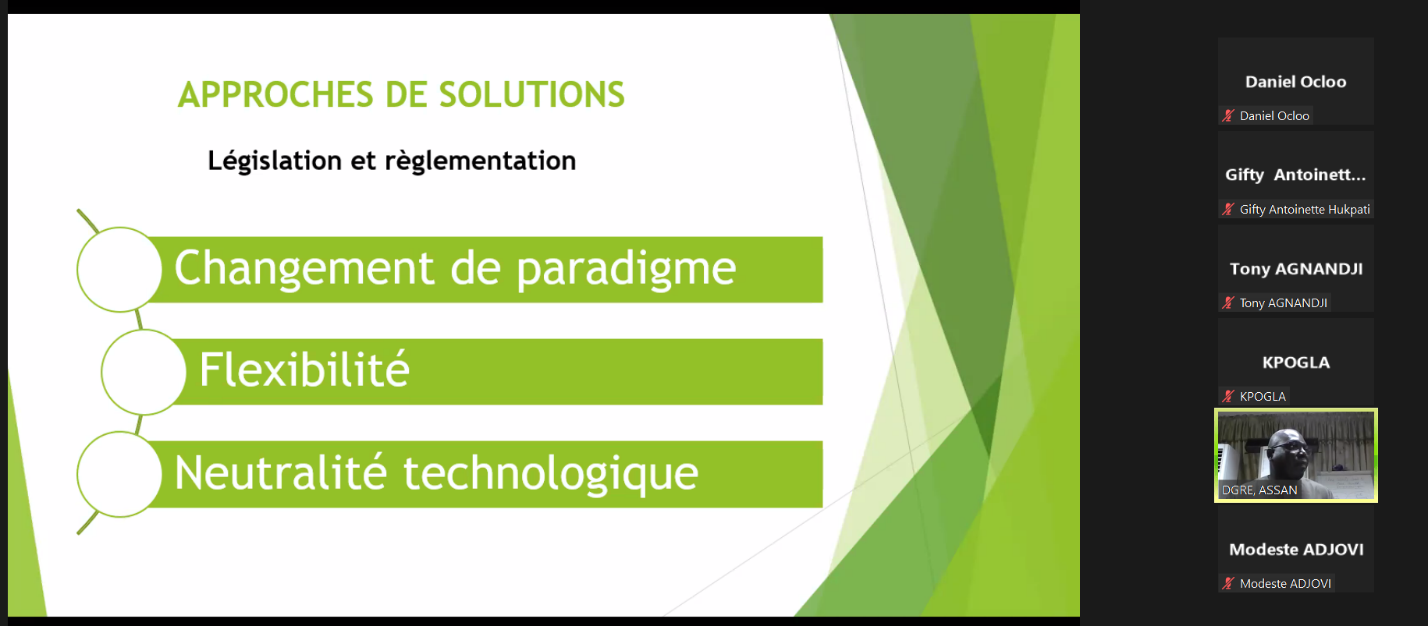
He proposed three leading solutions as follows:
-
Flexibility in regulations and legislation to access electricity
-
Accepting the Technological revolution
-
Mobilizing innovative financing and funding
Discussions were based on the availability of access to electricity, the economic challenges, and the challenges of certification and equipment.
A question on the difficulty for researchers to access reliable data to conduct research and the practical arrangements made to provide access to more comprehensive data to academics and researchers was asked. Mr. Assan mentioned that data and its viability are critical. He said data is collected annually, and a system enabling suppliers to access data is developed. He said work must be done to reduce the imperfections in the data received, which may take some time. He said that the impact of electricity on our communities should be looked at in the area of research.
Prof. Jerry John Kponyo, in his closing remarks, said the resource person has broken down the key issues in terms of energy access for everyone to understand and said an avenue for him to come over to KNUST as an adjunct lecturer to share his rich experience with students in the energy theme would be explored. He thanked Mr. Assan for his presentation and the participants for making the seminar successful, with about 100 people joining virtually. He commended the EiE, Benin team for hosting an impactful seminar. He appreciated participants from the various WASEND centres and the translation team for their translation services.
WASEND is a network of World Bank-designated African Centers of Excellence (ACEs) in engineering education and research. The network seeks to leverage the expertise of its members and build synergies to address Sub-regional challenges in energy and digital development.
It is made up of four West African Colleges of Engineering:
-
College of Engineering, Kwame Nkrumah University of Science and Technology (KNUST), Ghana
-
International Institute of Water and Environmental Engineering (2IE), Burkina Faso
-
University of Applied Science, Engineering, and Technology (USET), Gambia
-
College of Engineering, University of Abomey Calavi, Benin

